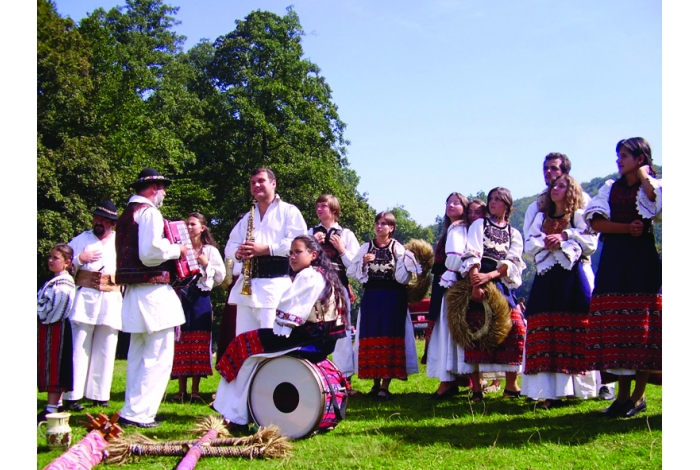Appreciating Culture
When I think back to two years ago, before my long journey began, it is difficult to believe that the person from my memories of that time is in fact the same sitting here, writing, today.

Romanian traditional costumes and music. Photo by Minisatul 'Sfantul Andrei'
I was tired of school, hated my village and was so ready to see the world. I did not care that I would not be home for the Danish Christmas and be missing out on duck, Christmas trees, rice porridge, presents, dancing and the many traditions that go with spending Christmas in Denmark. To me, these traditions meant very little and were nothing more than reminders of a country I was deeply bored with.
I first set out for England. Spending two months there working in the English countryside, being far away, but still only an hour away from home, it still was not different enough for me. Sure the language was another, but that really was all.
Next stop was Mexico and here I finally found what I was looking for. Something completely new and so different from anything I had ever known. First of all they spoke a language I first had to learn before I understood anything. Second of all, the people here were also something completely new. Some were great, some were not, but most of all: in a country struggling to move forward, even with a corrupt government and gangs raging the country, the people worked together in every aspect of their daily life.
Then it was time to head east to meet Romania. And here I again ran into something completely new. A country so filled with stories, even 4 months here will not be enough to learn everything. Listening to these stories, watching the parade at the Junii Brasovului, The Days of Brasov, listening to the music in Rotbav Village and seeing the dancing students in the Square, who gladly showcase the dances of Romania: these are things I have never and will never see back home.
In Denmark, a persistent tourist might be able to dig up a traditional dance or two, but he would have to look for a while before finding a person, who would actually know the steps and be willing to perform them as well. As I have learned more and more about Romanian history and culture, after having heard so many stories the people here have to tell, I have been confronted with my own perception of culture. And more specifically my own culture. When someone would ask me about Danish tradition, I realized that I in many cases had difficulties finding an appropriate answer. What was even more surprising to me was that I wanted to find out! Inspired by the Romanian people and their enthusiasm and connection to the old ways of life, I began to notice and to miss the small things that make me Danish, and before I knew it, I was telling stories of the Danish coastline, singing our songs and lecturing about Danish actors to everyone who wanted to listen.
If there is anything Romania has taught me, it is that it’s okay to miss your home. And that sometimes it takes being far away to appreciate a culture well on its way to disappearing completely in our modernized world and therefore might not be there when you return.
Romania is a changing country. Modern music and influence from the west is slowly suffocating the traditions that make Romania not just a country in Eastern Europe, but also a place filled with stories making up the identity of its people.
The Village Magazine is our tribute to this cause. These stories have been told to us and now we would like to retell them to you, so that we together can learn about and appreciate what makes a country: its culture.
By Johanna Engebjerg Englev




